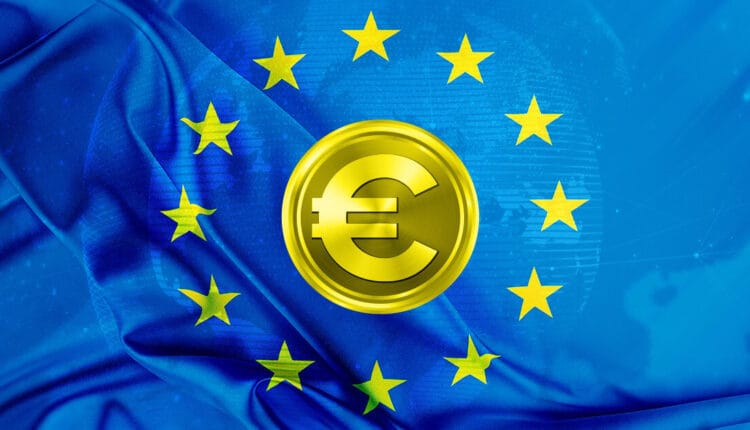BTCUSD, BTCGBP, and BTCEUR are the most traded Bitcoin pairs, each reflecting the interaction between Bitcoin and the specific economic environment of their underlying currencies. Analyzing their respective performances allows us to gain insight into the global Bitcoin market and how local economic conditions influence price action. While this data is limited to a single exchange, in this case, Bitstamp, it provides a representative view of broader trends and allows for meaningful conclusions.
Year-to-date, BTCEUR has delivered the highest returns, with a gain of 130.39%, compared to 122.24% for BTCGBP and 120.85% for BTCUSD. This outperformance can largely be attributed to the euro’s weakness relative to the dollar and pound. With the Eurozone grappling with low growth and limited monetary policy flexibility, the currency has suffered against a backdrop of dollar strength.
This depreciation amplifies Bitcoin’s gains in EUR terms, as it takes more euros to purchase the same amount of BTC. By contrast, the dollar’s strength—underpinned by strong US economic data, robust Treasury yields, and expectations of higher-for-longer Federal Reserve policy—has dampened BTCUSD’s apparent gains, as a stronger dollar offsets the upward pressure on Bitcoin’s price.
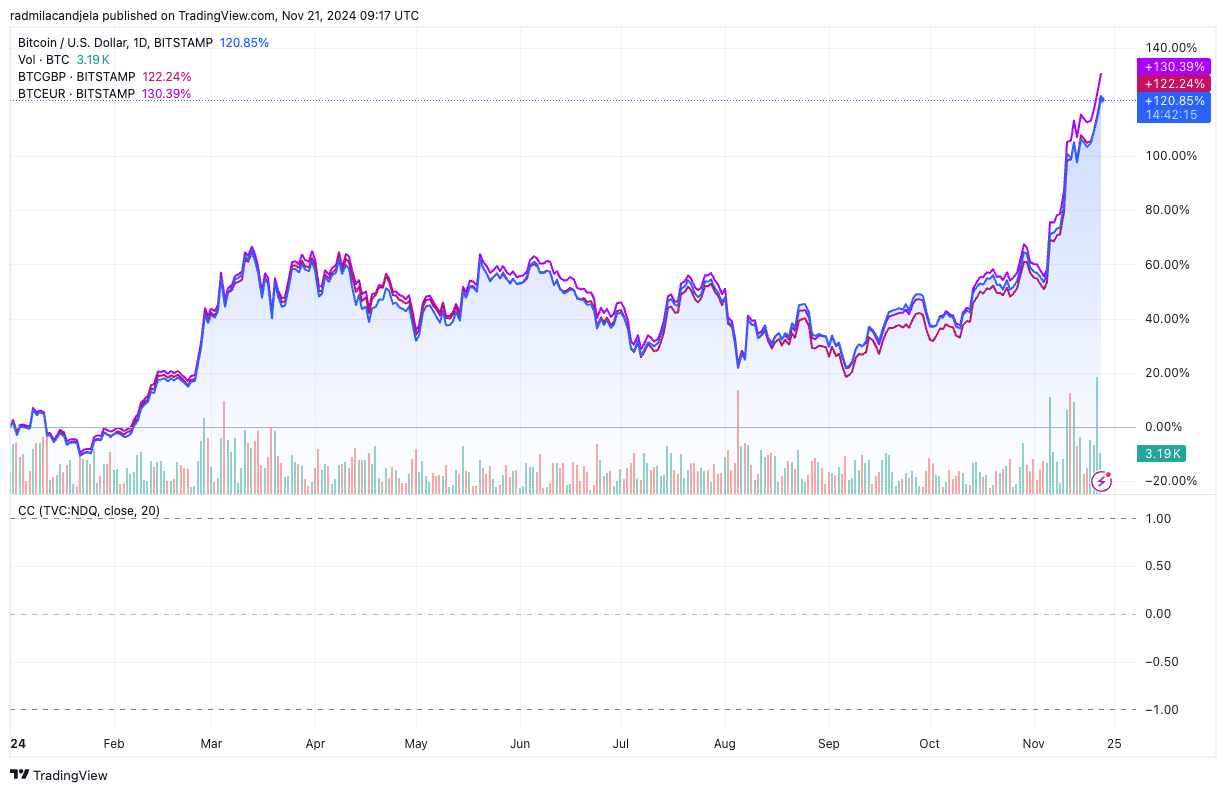
In the three-month window, the trends remain consistent, with BTCEUR continuing to outperform BTCGBP and BTCUSD. During this period, euro weakness became even more pronounced, falling to a one-year low against the dollar. This decline reflects a combination of disappointing Eurozone growth metrics, dovish signals from the European Central Bank, and geopolitical uncertainties.
Meanwhile, BTCGBP has shown a slightly more robust performance than BTCUSD, highlighting the pound’s relative weakness. The UK’s persistent economic stagnation and reduced hawkishness from the Bank of England have placed pressure on GBP, even as it maintains marginally more resilience than the euro.
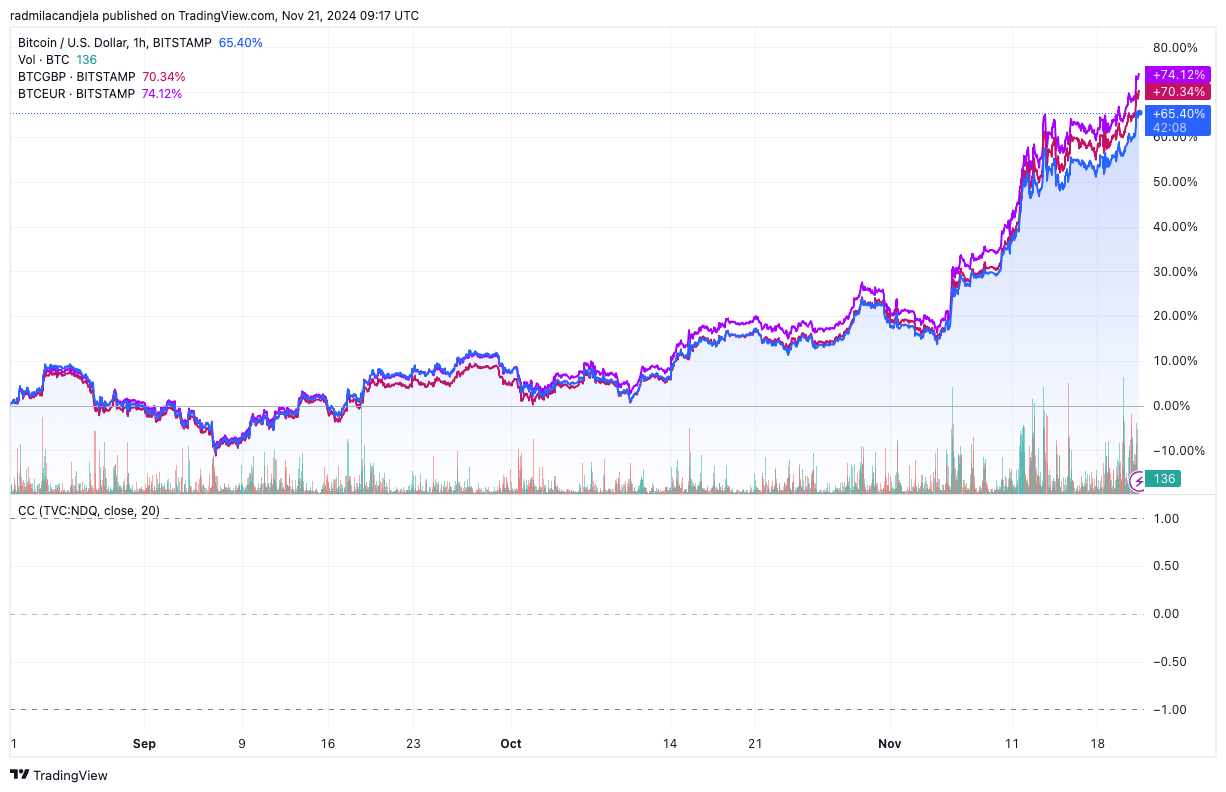
The price action since the US election shows that Bitcoin’s performance against these three currencies reflects the most recent macroeconomic and geopolitical developments. BTCUSD gained 42.38%, trailing BTCEUR and BTCGBP, which grew 46.22% and 45.87%, respectively. The dollar’s persistent strength has been vital in tempering BTCUSD’s gains. The market’s response to the US election was aggressive.
As the upcoming Trump administration’s policies are expected to boost US growth, the election strengthened the dollar and drove further demand for US assets, weighing on BTCUSD. In contrast, BTCEUR and BTCGBP were relatively unaffected by this political event, and their performances remained largely a function of their respective fiat weaknesses.
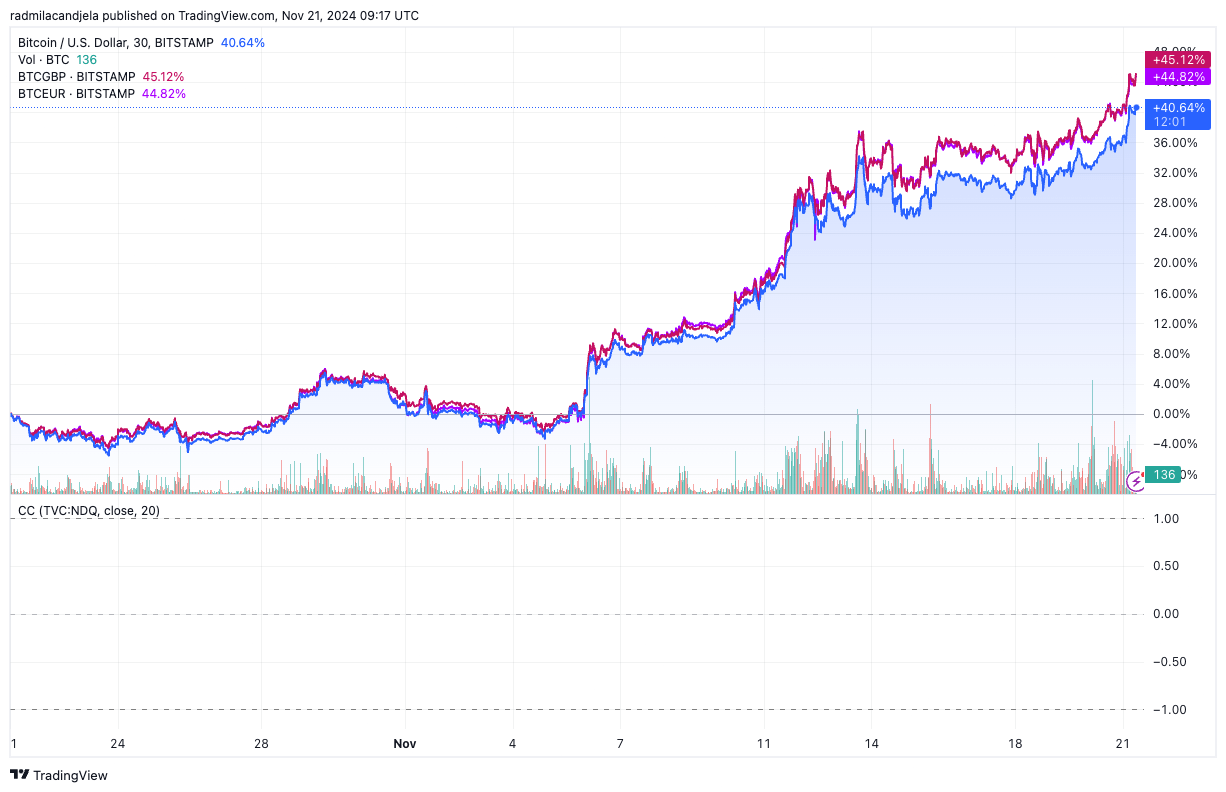
The divergence in Bitcoin’s performance across these pairs also shows the influence fiat volatility has on perceived returns. The euro and the pound have been far more volatile than the dollar this year, particularly given the contrasting monetary policies and economic prospects of each area.
This volatility exaggerates Bitcoin’s price movements in EUR and GBP terms, creating the illusion of greater returns compared to BTCUSD. As the Eurozone continues to face structural growth challenges, Bitcoin’s outperformance against the euro is likely to persist. While under similar pressure, the pound has shown slightly more resilience due to less severe structural concerns, which aligns with BTCGBP’s middle-ground performance relative to BTCUSD and BTCEUR.
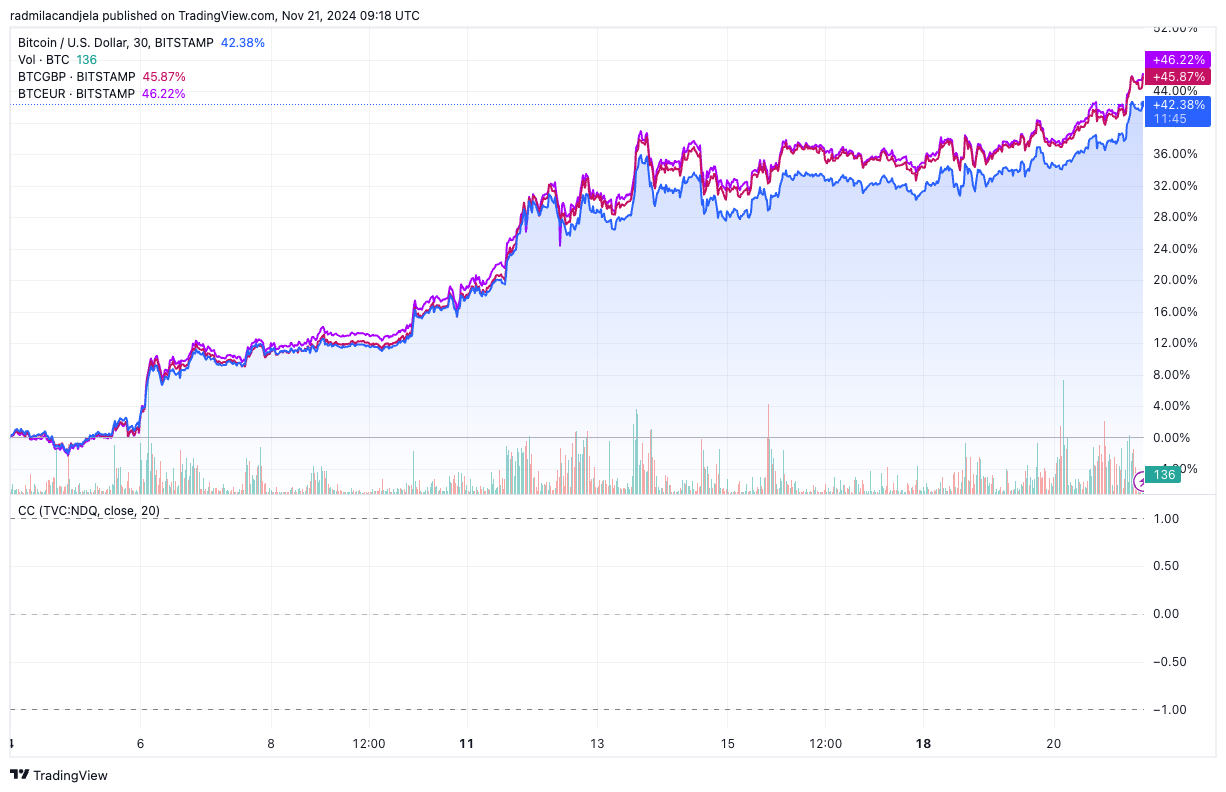
The short-term trends observed since the US election on Nov. 5 reveal a rather interesting market state. Despite the USD’s strength, BTCUSD steadily increased during this period. This suggests that while the dollar’s strength muted Bitcoin’s gains compared to BTCEUR and BTCGBP, it did not entirely stifle its price momentum.
For BTCEUR and BTCGBP, continued EUR and GBP weakness after the election allowed Bitcoin to sustain its relative outperformance. This is particularly relevant given that Eurozone and UK markets increasingly look to Bitcoin as a hedge against depreciating fiat currencies.
The post Weak euro fuels Bitcoin’s standout performance in Eurozone appeared first on Crypto Finders
